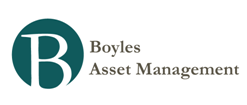Exploding debt threatens America – by John Taylor
Something to think about…..
I believe the risk posed by this debt is systemic and could do more damage to the economy than the recent financial crisis. To understand the size of the risk, take a look at the numbers that Standard and Poor’s considers. The deficit in 2019 is expected by the CBO to be $1,200bn (€859bn, £754bn). Income tax revenues are expected to be about $2,000bn that year, so a permanent 60 per cent across-the-board tax increase would be required to balance the budget. Clearly this will not and should not happen. So how else can debt service payments be brought down as a share of GDP?
Inflation will do it. But how much? To bring the debt-to-GDP ratio down to the same level as at the end of 2008 would take a doubling of prices. That 100 per cent increase would make nominal GDP twice as high and thus cut the debt-to-GDP ratio in half, back to 41 from 82 per cent. A 100 per cent increase in the price level means about 10 per cent inflation for 10 years. But it would not be that smooth – probably more like the great inflation of the late 1960s and 1970s with boom followed by bust and recession every three or four years, and a successively higher inflation rate after each recession.
…
The time for such excuses is over. They paint a picture of a government that is not working, one that creates risks rather than reduces them. Good government should be a nonpartisan issue. I have written that government actions and interventions in the past several years caused, prolonged and worsened the financial crisis. The problem is that policy is getting worse not better. Top government officials, including the heads of the US Treasury, the Fed, the Federal Deposit Insurance Corporation and the Securities and Exchange Commission are calling for the creation of a powerful systemic risk regulator to reign in systemic risk in the private sector. But their government is now the most serious source of systemic risk.
The good news is that it is not too late. There is time to wake up, to make a mid-course correction, to get back on track. Many blame the rating agencies for not telling us about systemic risks in the private sector that lead to this crisis. Let us not ignore them when they try to tell us about the risks in the government sector that will lead to the next one.
…………………
An inflation-related paragraph from Mr. Buffett’s Annual Letter:
“This debilitating spiral has spurred our government to take massive action. In poker terms, the Treasury and the Fed have gone “all in.” Economic medicine that was previously meted out by the cupful has recently been dispensed by the barrel. These once-unthinkable dosages will almost certainly bring on unwelcome aftereffects. Their precise nature is anyone’s guess, though one likely consequence is an onslaught of inflation. Moreover, major industries have become dependent on Federal assistance, and they will be followed by cities and states bearing mind-boggling requests. Weaning these entities from the public teat will be a political challenge. They won’t leave willingly.”
- Hussman Weekly Market Comment: Out On A Limb - An Investor's Guide To X-treme Monetary And Fiscal Conditions
Government intervention in the U.S. economy is approaching the point where probable long-term costs exceed short-term benefits – straining to maintain the pace of extraordinary fiscal and monetary measures that have repeatedly nudged the U.S. economy...
- Richard Duncan: Wealth Preservation Through Diversification
The excerpt below is from the final chapter of The New Depression by Richard Duncan on inflation and deflation. Wealth Preservation through Diversification The hard truth is that it is not easy to preserve wealth. If it were, the families who were wealthy...
- Hoisington Q4 2011 Letter
High Debt Leads to Recession As the U.S. economy enters 2012, the gross government debt to GDP ratio stands near 100% (Chart 1). Nominal GDP in the fourth quarter was an estimated $15.3 trillion, approximately equal to debt outstanding by the federal...
- Warren Buffett’s Comments On Inflation
Many well known and respected gurus in the value community – such as Warren Buffett, Seth Klarman, and Jim Grant, to name a few – have mentioned the risk of high inflation that could result from all of the government-led stimulus. In Poor Charlie’s...
- Little Logic To Bond World Amid Current Risk Phobias - By Jim Grant
"There are no bad bonds, only bad prices," the traders used to say. They should say it again, only louder. In the spring of 1984, long-dated Treasuries went begging at yields of nearly 14 per cent in the context of an inflation rate of just 4 per cent....

